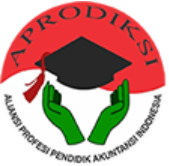IMPROVING STUDENT LEARNING ACTIVITIES THROUGH STUDENT TEAM ACHIEVEMENT DIVISION LEARNING MODEL
DOI:
https://doi.org/10.21831/jpai.v17i1.26335Abstract
A good learning method is a part of the factors that the school manage to improve students' activities in a class. A cooperative learning model is one of the learning models are often used by teachers in their teaching learning process. This research aims to improve student learning activities through the implementation of student team achievement divisions (STAD) learning model. This research is a Classroom Action Research conducted in two cycles involving 30 students of class XII Social 1 SMA N 1 Wonosari academic year 2018/2019. Data were collected with an observation and a documentation equipped with observation sheets, observation guidelines, and field notes. Analysis of the data used a qualitative and quantitative approach consisting of data processing, data presentation and drawing conclusions. The result shows that the Implementation of STAD learning model can improve Accounting Learning Activities of students Class XII Social 1 SMA N 1 Wonosari supported by an increase in average of learning activities score from 56,02% (in cycle I) to 92,07% (cycle II). Results are discussed and recommendation are provided.Keywords: Accounting Learning Activities, STAD
Downloads
Published
07/25/2019
How to Cite
Widyani, G. P., & Sukirno, S. (2019). IMPROVING STUDENT LEARNING ACTIVITIES THROUGH STUDENT TEAM ACHIEVEMENT DIVISION LEARNING MODEL. Jurnal Pendidikan Akuntansi Indonesia, 17(1), 31–41. https://doi.org/10.21831/jpai.v17i1.26335
Issue
Section
Articles
License
Authors who publish with Jurnal Pendidikan Akuntansi Indonesia journal agree to the following terms:
- Authors retain copyright and grant the Jurnal Pendidikan Akuntansi Indonesia journal right of first publication with the work simultaneously licensed under Creative Commons Attribution License (CC BY 4.0) that allows others to share the work with an acknowledgment of the work's authorship and initial publication in this journal.
- Authors can enter into separate, additional contractual arrangements for the non-exclusive distribution of the published version of the work (e.g., post it to an institutional repository or edit it in a book), with an acknowledgment of its initial publication in this journal.
- Authors are permitted and encouraged to post their work online (e.g., in institutional repositories or on their website) before and during the submission process, as it can lead to productive exchanges, as well as earlier and greater citation of published work.






